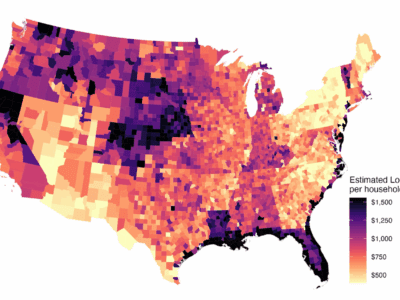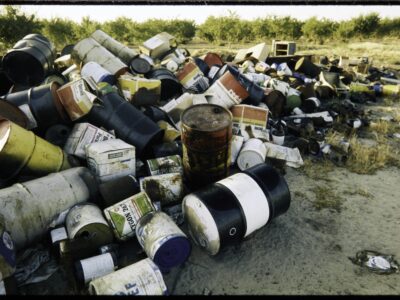What Is An “Environmental” Lawyer?
No side of the profession should have a monopoly on the term
My post last week on renaming “environmental” law to “resources” law greatly peeved a number of private bar attorneys, who thought I was impugning their entire side of the practice. My post clearly played into some longstanding tension and defensiveness (no pun intended) about this issue. These attorneys believe that even though they may represent polluting clients, they are able to do good work for the environment by steering their clients to comply more fully with applicable environmental laws.
I have no doubt that attorneys working with polluters can and do make a positive impact on the environment by advising their clients to take proactive steps to comply with laws, and in some cases to go beyond the minimum to protect the environment. And there are certainly instances where public sector lawyers and plaintiffs’ attorneys may be hurting the environment, such as when a lawyer in a state attorney general’s office defends a polluting agency or when a plaintiffs’ attorney is suing to stop an environmentally beneficial project. Even nonprofit attorneys could arguably be hurting the environment if they block badly needed renewable energy projects (although I’m somewhat sympathetic to these types of suits). In short, it’s complicated.
So what then does it mean to be an “environmental” attorney? With only a few exceptions, none of these lawyers — from the defense, plaintiff, or public sector side — have an ethical, professional duty to protect the environment. Their duty is to their client, and if they help the environment, then that is an incidental outcome.
This dynamic brings me back to the subject of my original post: the term “environmental” implies to the public (and perhaps even within the practice) that all the attorneys in this field are somehow working on behalf of the environment. My Kim Jong Un analogy was described by one commenter as a “cheap shot,” but human rights law actually provides the closest analogy. When you meet a “human rights” lawyer, you never assume that that attorney is working to destroy human rights. But in our field, there are certainly “environmental” lawyers whose work will lead to environmental degradation.
Some commenters on my post simply don’t have a problem with the mismatch between public perception and the actual work of attorneys in this field. As a result, they don’t see a need, or a need great enough, to justify a renaming. But I think greater honesty within the profession with our word choices would be a good move. The euphemisms in the field have become numerous. Here at UC Berkeley, for example, the College of Mining at some point morphed into the Orwellian-sounding “Materials Science and Engineering Department” (I assume once the word “mining” took on a negative association for the public). But whatever happened to just using plain English to describe our work? “Resources” in my view comes a lot closer to reality than “Environmental.”
I’m certainly not the first person to recognize this perception and labeling problem. Santa Clara law professor (and noted environmental defense attorney) Ken Manaster wrote about it in a 1994 Loyola Law Review article entitled “Ten Paradoxes of Environmental Law” (PDF). I’ll close by quoting at length from his piece, which is worth reading in full:
One of the consistent, though minor, pleasures of working in environmental law is the frequency with which every environmental lawyer (EL) experiences the following type of conversation with a nonlawyer (NL):
NL: What kind of work do you do?
EL: I’m a lawyer.
NL: What kind of lawyer?
EL: I practice environmental law.
NL: That’s great. That must be a very interesting and exciting field. There is so much being done now for protection of the environment.This conversation is one aspect of environmental law that has not changed in twenty-five years. Environmental lawyers have been widely and correctly perceived, both by nonlawyers and other lawyers, as doing extremely interesting and useful work.
What may be incorrect, however, is the accompanying and widely held assumption that every “environmental” lawyer is a lawyer for the environment. The source of this impression is probably the historical fact that the most visible lawyers at the genesis of this field were those working from a proenvironmental protection, proenvironmental plaintiff, proenforcement position. The popular image still is formed mostly by publicity surrounding lawsuits brought by public interest lawyers for environmental groups or by environmental prosecutors at the federal, state, and local levels of government. Lawyers in these two categories always have been, and still are, the easiest to perceive as lawyers for the environment, even though the label “environmental lawyer” generically applies to all lawyers who work on environmental matters.
These perceptions are paradoxical because while environmental lawyers are seen as lawyers for the environment, the vast majority of environmental lawyers are neither public interest lawyers nor prosecutors. Most environmental lawyers represent regulated interests, such as polluting industries, private companies engaged in land or natural resource development projects, or governmental or quasi-governmental agencies that are polluters or resource users themselves. The gap between the pro-environment connotation of “environmental lawyer” and the type of work most environmental lawyers perform reflects lingering confusion regarding the functions of the environmental bar. This confusion exists not just in public perceptions, but to some extent within the legal profession as well.
Perhaps the confusion is best exemplified by a governmental attorney, such as one in a state attorney general’s office, who at times may represent environmental enforcement agencies and at other times may represent state facilities that are sources of pollution or other adverse environmental impacts. Can the lawyer fulfilling both of these roles meaningfully be seen-or see himself or herself-as a lawyer for the environment? Is this lawyer at times really working against the environment in the service of other economic or political objectives? In this and other contexts, should the term environmental lawyer be used more sparingly, perhaps only by the two categories of plaintiffs’ lawyers mentioned above? Does environmental practice need more specific labeling of sub-specialties on opposing sides, of the type commonly found in the labor law and torts fields?
Reader Comments
6 Replies to “What Is An “Environmental” Lawyer?”
Comments are closed.







I hosted a discussion at the University of South Florida for Philosophy students, and I got this question : “How do I become an environmental lawyer?” I was perplexed, I didn’t know what to say. I had numerous friends with great credentials get turned down from an intern position for some environmental firms here in Florida. I told him, unless you go to a really good school, or know the right people, you’re better off doing something else, and then volunteering your time and money. I will be happy to share this article with the undergraduate student.
Thank you.
I’ve found in Australia (where I am from), ‘defensive’ environmental work tends to be called ‘environment and planning.’ Always the two together. But then that is likely a product of the fact that there is little-to-no proenvironmental litigation, and environmental regulation compliance is not so complex as the US (I’m sure some working in the area would disagree there). So it is uncommon to specialise only in environmental law, unless you work for government.
Both as an attorney within environmental agencies (two stints) and within private firms (three) over 30-odd years, I have found this problem is avoided by not calling myself an “environmental lawyer.”
Rather, I practice environmental regulatory law within an agency or an environmental law section. Most people get the point.
Ethan,
Like others from the private bar, I found your prior post titled “Time to Rename ‘Environmental’ Law” demeaning and poorly reasoned. I appreciate this post, in which you attempt a somewhat more conciliatory approach. I applaud the title of this post, and your recognition that the moral landscape of “environmental law” is more complicated than you implied in your original post.
I’m not interested in the central subject of your posts. Yes, there is confusion among the general public about what many “environmental lawyers” do. This is not uncommon—I don’t fully understand what many of my friends in the tech or financial sectors do with their working hours. I write because I am interested in the tone of your posts, and the morally binary view it implies. The words you have chosen to use in discussing this linguistic confusion suggest a sense of entrenched and combative moral superiority.
You are right that your original post “played into longstanding tension” between private sector and public-interest environmental advocates. It’s my firm belief that this “tension” hurts the environmental movement on many fronts. On a large scale it prevents successful political messaging, distorts policy, and encourages people on “both sides” to waste billions of dollars on litigation. On a more human scale, it alienates would-be environmental advocates that work in the private sector. For example, I have witnessed talented young environmental attorneys working in the private sector decline to participate in events at UC law schools, because they expected to be “attacked” at those events.
As a UCLA Law alumnus, I have a stake in and appreciate your work. I certainly hope that you speak more carefully to private sector representatives in your work on behalf of the UC Climate Change and Business Program.
Hi Drew,
Thanks for sharing your thoughts about these posts. The reason that I discuss environmental law in the “morally binary” way that you described is not because I agree with that view, but because I think the term “environmental” law suggests that our field is morally binary when it’s not in fact so. In other words, the perception among the public is not — as you suggest — confusion (“what exactly do environmental lawyers do?”), but it’s actually a misperception (“all environmental lawyers work to protect the environment”). As I tried to explain in this latest post (and it sounds like you would agree), the reality is much more complicated than that.
I regret that I didn’t more fully explain these thoughts in my original post, which many interpreted as a broad-side against defense attorneys that does not reflect my actual views. The irony is that, given the perceived hostility you described, attorneys in that side of the field (for lack of a better term) might benefit the most from more dialogue around these issues.
Ethan
Thanks for your response, Ethan. I agree with what you’ve said, though I think it may be silly to speculate about who would “benefit the most” from dialogue.
One final comment: Several times you have conflated private environmental practice with “defense” work. The reality is that the bulk of contemporary private environmental practice is not in defending litigation, nor is it even in litigation. The “environmental law” label has come to be applied to a great range of work, very little of which is “defensive” in posture. Private environmental attorneys counsel their clients on all kinds of transactions, as well as compliance with regulations governing waste management, product formulation, advertising, health and safety, end-of-life programs for products, the list goes on. It is not uncommon that business entities have an interest in strong and fair environmental regulation, and many attorneys–myself included–spend much of their time interfacing with agencies to advocate for strong and scientifically sound environmental policies.
Perhaps I’m beating a dead horse, as you’ve already acknowledged that the field is complicated and diverse. Still, I thought I’d point out that the assumption that private counsel is always in a “defensive” posture plays into the “morally binary” view of environmental law.